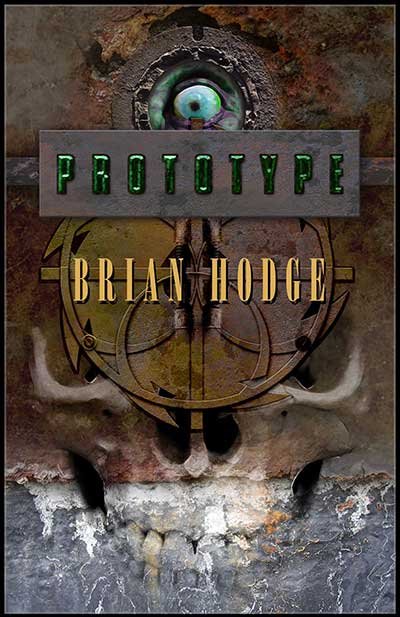
Prototype
He’s an immediate Code Blue when brought into the ER in Tempe, Arizona: a young drifter who wandered in from the desert, who was attacked for mundane reasons, and who broke his own hands on his attackers’ faces and lacerated them with the jagged bones. He nearly has to be submerged in Thorazine to bring him under control.
His name is Clay Palmer, and he’s one of the rarest people on earth … the carrier of a genetic mutation with frightening implications for humanity.
With the time ticking on his self-control, Clay wages a desperate struggle to understand what has gone so wrong, with the help of psychologist Adrienne Rand and her anthropologist lover, Sarah.
It’s a struggle that takes them from the desert to the mountains, into the tribal subculture of Clay’s friends, and on a cross-country odyssey through a frozen landscape corroded with industrial blight, toward the other claimant for Clay’s soul: a man who has spent a lifetime spreading chaos and destruction in the world. A man who is more like him than not. A man who wants sons and daughters…
Even if he has to breed them himself.
REVIEWS & ACCOLADES
“A shattering, sobering novel that transcends the horror genre and provides a terrifying commentary on our own future. It’s also the finest work yet from the consistently excellent Hodge. Let’s just hope he's wrong.” — Fangoria
“An intricate work of fiction, one that transcends genre and dares to explore philosophical and social issues … an honest exploration into humanity, especially the marginalization of humanity. Brian Hodge is an alchemist, one who can truly turn lead into gold. He is an original, a writer who is technically adept and stylistically superb.” — Lip Dink
“Resonates with questions of identity and what it means to be human … Brian Hodge makes a lasting impression with Prototype. Life’s not like a novel. We don’t write our lives and resolve our dilemmas so easily. But Prototype will at least lead you to consider the higher questions … questions that have a secret relevance to your own life.” — John Shirley, in the Foreword to the second edition
“The most powerful novel from one of the genre’s most powerful artisans: in Prototype, Brian Hodge unleashes psychological and philosophical havoc in a Post-modernesque excursion of the worst kind of self-revelation. Can personal despair be progressive? Can it be a transitive event? Can darkness be utterly illuminating? Yes. This book is fiction’s equivalent of a canvas by de Kooning or Munch, or a thesis by Nietzsche or Sartre. Great fiction is always provocative, in which case Prototype might actually be too challenging by what it makes the reader consider. There’s something suspiciously cryptic here — a cruel and very premeditated secret that Hodge hides within the layers of an ultimately entertaining story. It’s the most depressing book I’ve ever read and, conversely, one of the most enlightening.
“The hardest thing to do in the horror field is produce a story that entertains an anticipatory readership and delivers an intellectual package at the same time. Hodge has always done this well but in Prototype he threatens to blow some of the field’s smartest work out of the water. He fuels an accessible story framework with cool characterizations and a realistic setting which at first make the reader comfortable, then integrates a plot of secret genetics and mounting discovery — and hyper-violence — to produce a character study that I really don’t think has ever been done so effectively. The standard clichéd buzz-terms like ‘nail-biting,’ ‘un-put-downable,’ ‘gripping to the last page’ all apply here … but that’s just the icing. Wait till you get to the cake beneath, much in the same way as the harrowing main-character gets to his soul. On the other hand, it’s a hard book to read if one lacks the mental guts. Certain psyches — like mine — can be indelibly tarnished by the implications. Prototype needs to be celebrated for its overall importance within this entity we call the modern horror genre. Personally, it’s left a decade-old impact on me, a stain on my spirit that won’t wear off; it’s a psyche-wrecking work of art. I read it once, but I’ll never read it again because I’m too afraid to.” — Edward Lee, author of Flesh Gothic and City Infernal






